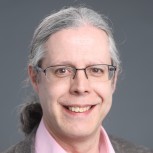
Professor of Optical Fibre Communication
Academic Division: Electrical Engineering
Research group: Photonics
Telephone: +44 1223 7 62390
Email: sjs1001@cam.ac.uk
Research interests
Background: My research is focused on optical fibre communication, whereby digital data modulates light that is then transmitted over huge distances using optical fibres. Over 99% of all long distance international data traffic is carried using optical fibres and as such they underpin the today’s global communication infrastructure and internet that currently links 5.6 billion people. It is rich area of research, which encompasses both the theory and practice of engineering, ranging from developing new science, mathematics and technology to understanding the environmental, economic and societal impact which these optical fibre communication systems have on today’s global community. It is an area I have found fascinating that I have been actively carrying out research in for over twenty five years.
My current research explores four areas:
1. Algorithms for digital coherent transceivers. Research is focused on synchronisation and equalisation algorithms for digital coherent receivers, including both reduced complexity and fast algorithms that are able to converge and recover the data in less than 200 ns.
2. Coherent passive optical networks. The target is to offer aggregate capacity of >100 Gbit/s with uncontended 10 Gbit/s to the home, employing coherent detection for sensitivity improvements and frequency selectivity. Recent research has focused on simplifying the subscriber side receiver, for example employing Alamouti coding with heterodyne detection to reduced the number of required receivers from 4 to just 1.
3. Statistical optical communication system design. This research area includes probabilistic design and the investigation of rare (but catastrophic) events on optical fibre communication systems.
4. Cognitive optical networks. With the creation of software defined transceivers, cognitive optical networks emerge in which the flexibility and intelligence imbued on the transceiver is utilised to improved the performance of the network, for example increasing capacity and/or resilience. Key research challenges include determining the capacity of a nonlinear optical network and the optimal abstraction of the physical layer for a software defined network orchestrator.
Teaching activity
Current:
Part IA
- Mathematical Methods: Lecturer for first half of Michaelmas Term covering vectors, functions and complex numbers
- Exposition: Cohort leader
- Integrated Electrical Project: Cohort leader
- College supervisions for paper 3 (Electrical & Information Engineering) and paper 4 (Mathematical Methods)
Part IIB
- Module 4B23 Optical Fibre Communication: Module leader and lecturer
- Project supervisor
Previous:
Part IA
- Mathematical Methods: Lecturer
- Exposition: Co-ordinator and cohort leader
- Integrated Electrical Project: Cohort leader
- College supervisions for paper 3 (Electrical & Information Engineering) and paper 4 (Mathematical Methods)
Part IB
- Integrated Design Project (overall leader and cohort leader)
Part IIB
- Module 4B23 Optical Fibre Communication: Module leader and lecturer
- Module 4X1 Dissertation: Module leader
- Project supervisor
Other positions
- Fellow of Churchill College, Cambridge
- Fellow of the Institute of Electrical and Electronics Engineers (FIEEE) for contributions to digital coherent transceivers for optical fiber communication
- Fellow of the Optical Society (FOSA) for contributions to digital coherent transceivers for optical fiber communication
- Fellow of the Institution of Engineering and Technology (FIET)
- Fellow of the Higher Education Academy (FHEA)
- Chartered Engineer (CEng) registered with Engineering Council U.K.
Biography
Seb J. Savory received M.Eng., M.A., and Ph.D. degrees in engineering from Cambridge, an M.Sc. (Maths) in mathematics from the Open University and a Postgraduate Certificate in Teaching and Learning in Higher Education from UCL.
His interest in optical fibre communication began in 1991, when he joined STL (subsequently Nortel) in Harlow, the birthplace of the field. Having been sponsored by Nortel through his undergraduate and postgraduate studies, he rejoined the Harlow Laboratories in 2000. In 2005, he moved to UCL where he held a Leverhulme Trust Early Career Fellowship from 2005 to 2007, before being appointed as a Lecturer (2007), Reader (2012) and Professor (2015). In October 2015, he was elected as a Fellow of Churchill College, Cambridge moving to Cambridge in January 2016 as a University Lecturer and subsequently promoted to Professor of Optical Fibre Communication in October 2019. For his contributions to digital coherent transceivers for optical fibre communication he was elected a Fellow of the IEEE and the OSA in 2017.
He has taught electronics, maths and optical fibre communication systems at both UCL and Cambridge and was heavily involved in the design of the Integrated Engineering Programme at UCL (when he was Undergraduate Tutor and Programme Director within the Department of Electronic and Electrical Engineering). From August 2018 to July 2021 he was the Director of Undergraduate Education within the Cambridge University Engineering Department.
Externally, he serves on the budget committee for the Optical Fiber Communication (OFC) Conference having previously served as Chair of the OFC Steering Committee from 2018-2021, Program Chair for OFC 2013 and General Chair for OFC 2015. From 2021-2023 he was Vice President (Publications) of the IEEE Photonics Society (IPS), having previously served on the IPS Board of Governors (2018-2020) and Editor-in-Chief of IEEE Photonics Technology Letters (2012-2017). He was a Technical Programme Committee Chair for the European Conference on Optical Communication (ECOC), held in Glasgow in 2023. He is a Chartered Engineer and Fellow of the IEEE, IET, OSA and HEA.
